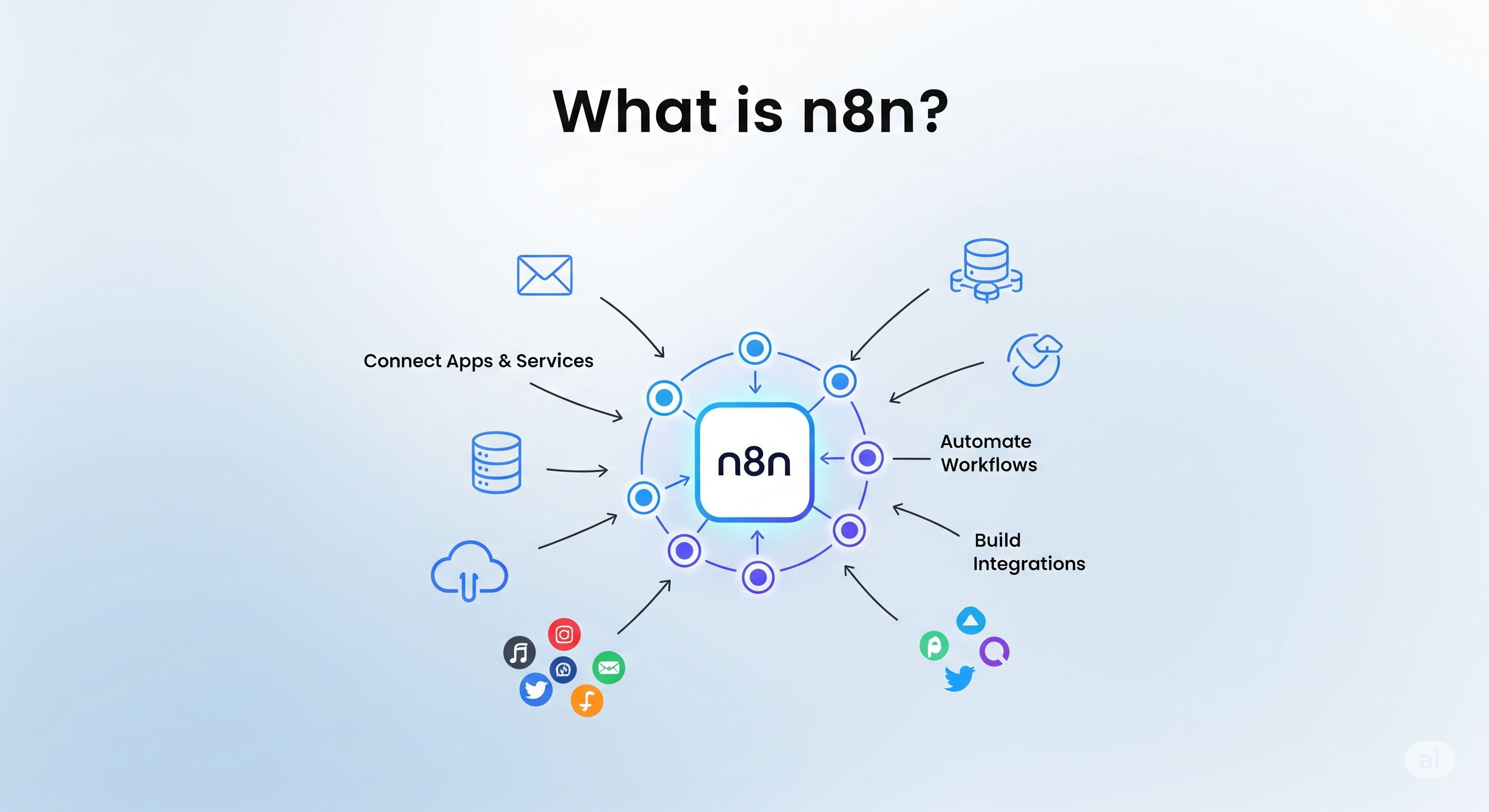How to Choose the Right SaaS Development Company for Your Business

How to Choose the Right SaaS Development Company for Your Business
Picking the right SaaS development company is a make-or-break decision for turning your software idea into a real-world, scalable product. This guide gives you a complete, step-by-step method for picking the perfect SaaS app development partner. We'll cover key things to look for, how to compare different companies, and answer the most common questions. It doesn't matter if you're a big company or a new startup; this article will give you practical tips to help you make a smart choice, using the same strategies top-performing blogs in the industry recommend.
How to Choose the Right SaaS Development Company for Your Business
Meta Description
Ready to build a scalable SaaS platform? Learn the crucial steps, criteria, and questions for selecting the best SaaS development company. This guide helps you compare different approaches, check out potential partners, and find answers to your key questions about SaaS development for your business.
Introduction
Choosing the best SaaS development company can be the one thing that decides if your project sinks or swims. In today's crowded digital world, everyone wants enterprise-level SaaS, cloud apps made just for them, and quick MVPs. You need a partner who really gets your industry, uses the latest tech, and will stick around to support you. This kind of partnership can put you way ahead of the competition. This guide walks you through planning your search, checking out top SaaS developers like The Ninja Studio, and steering clear of common mistakes.
What is SaaS Development?
So, what exactly is SaaS development? It’s all about creating Software as a Service applications. These are cloud-based solutions you use over the internet, not programs you install on your computer. The process of SaaS application development covers everything from the initial idea and design to building, deploying, and keeping the software running. Users typically pay a subscription to use it, which gives them flexibility, automatic updates, and lower costs upfront compared to old-school software.
Key Benefits of SaaS Development
- Scalability: SaaS platforms can easily scale to handle more users or higher workloads without expensive infrastructure changes.
- Cost Efficiency: Businesses save money by avoiding large upfront software purchases and only paying for what they use.
- Accessibility: SaaS applications are available anytime, anywhere, on any device with an internet connection.
- Continuous Updates: Users get the latest features and security patches automatically, without needing manual installations.
SaaS Development Lifecycle
- Ideation & Market Research: Defining the target audience, business model, and product-market fit.
- Design & Prototyping: Crafting a user-friendly interface (UI/UX) tailored to customer needs.
- Development: Building the software using cloud-ready architectures, often with microservices and APIs.
- Testing: Ensuring the product is bug-free, secure, and optimized for performance.
- Deployment: Releasing the SaaS product to the cloud environment for customer use.
- Maintenance & Scaling: Continuous monitoring, updates, and feature improvements based on user feedback.

Why Invest in Custom SaaS Solutions?
- Custom SaaS solutions are built to fit your business needs perfectly.
- They offer better scalability, smoother integrations, and a superior customer experience than generic software.
- A well-designed, custom SaaS platform can make you stand out in a competitive market.
- Custom solutions also make it easier to follow industry rules and adapt as your business expands.
Investing in custom SaaS solutions allows businesses to create software tailored to their exact needs instead of relying on generic, one-size-fits-all platforms. Unlike off-the-shelf tools, custom SaaS applications are designed around your workflows, customer experience goals, and long-term growth plans. This ensures better efficiency, stronger competitive advantage, and a higher return on investment. With subscription-based models, businesses also gain predictable costs and flexibility to scale as they grow.
Advantages of Custom SaaS Development
- Personalization: Every feature aligns with your company’s unique requirements.
- Competitive Edge: Tailored functionalities help you stand out in your industry.
- Better Integration: Custom SaaS platforms can be designed to seamlessly connect with existing tools and databases.
- Long-Term Savings: While upfront costs may be higher, custom SaaS solutions reduce inefficiencies and reliance on multiple third-party apps over time.
When Should Businesses Choose Custom SaaS?
- Rapid Growth: Scaling startups that need adaptable systems to handle more users and data.
- Industry-Specific Needs: Companies in healthcare, finance, or manufacturing often require compliance-focused features not found in standard SaaS products.
- Complex Workflows: Businesses with specialized processes that can’t be supported by off-the-shelf software.
- Desire for Ownership: Organizations that want full control over their data, infrastructure, and feature roadmap.
Essential Steps for Choosing the Right SaaS Development Company
Finding the right partner for saas software development means you need to look at their technical skills, how they work, and if they’re a good cultural fit. Here’s a straightforward process that successful industry leaders follow:
1. Define Your Project Requirements
- Get clear on your goals, tech needs, business objectives, budget, and timeline.
- List out the absolute must-have features, how much you expect to grow, security requirements, and any rules specific to your industry.
- Spending time on this analysis phase helps you sidestep project delays, unexpected changes, and extra costs.
2. Research and Shortlist Providers
- Search for software development agencies that have experience in your field, happy clients you can see, and a solid reputation.
- Use online reviews, testimonials, and word-of-mouth to make a short list of companies that know your industry.
3. Assess Technical Expertise and Technology Stack
- Check out the technologies they use, like Python, Node.js, and cloud platforms such as AWS, Azure, or GCP.
- Make sure the company knows its stuff when it comes to modern SaaS design, multi-tenant setups, security, and connecting with other software.
- A great partner should be skilled in SaaS web application development, mobile-friendly design, and the latest coding practices.
4. Evaluate Portfolio and Case Studies
- Take a close look at their past work. Focus on projects that are complex, scalable, and similar to what you have in mind.
- Look for real results: Did their work boost revenue or get more customers engaged? Was it finished on time and on budget?
5. Check Cloud Proficiency and Security Standards
- Your developer should have real experience with cloud-native development and know how to manage cloud costs, stay compliant, and use DevOps methods.
- Give priority to companies that are familiar with GDPR, HIPAA, or other important security standards.
6. Understand Their Development Process
- Ask them about how they manage projects, for example, if they use Agile, Scrum, or Kanban.
- Get a clear picture of the steps from MVP development to the full launch and ongoing updates.
- Good communication, clear sprint planning, and transparency are vital for everything to run smoothly.
7. Review Team Structure and Communication Approach
- A strong team will have skilled project managers, UX/UI designers, developers, QA testers, and DevOps engineers.
- Frequent, open communication like daily check-ins, shared dashboards, and regular demos keeps everyone on the same page and avoids confusion.
8. Check Pricing, Contract Terms, and Value
- Compare how they structure their prices: is it a fixed price or based on time and materials? Leading providers like The Ninja Studio can offer flexible models.
- Find out what’s included in the cost, such as support after launch, maintenance, and upgrades.
- Don't just go for the cheapest option; it’s rarely the best choice for long-term value. Balance cost with their expertise and reliability.
9. Test Collaboration with a Small Project or MVP
- Before you commit to a huge project, start with a smaller pilot or an MVP to see how well they deliver and if you work well together.
- This is a great way to test their processes, how they report progress, and how responsive they are.
10. Ensure Post-Launch Support and Maintenance
- A top-notch SaaS app development partner will offer continuous support, fix bugs, provide upgrades, and help with user training.
- Make sure you’re clear on the service level agreements (SLAs) for uptime, how they handle issues, and how often they release new features.
Key Features and Criteria to Evaluate in a SaaS Development Company
- Domain Experience: Which industries have you served? Case studies?
- Technology Stack: What tech do you use? Experience with cloud, APIs?
- Project Management Approach: Agile? Scrum? Communication channels?
- Security & Compliance: SSL, encryption, protocols, compliance?
- Team Structure: Seniority mix? Dedicated project manager?
- Reviews & Testimonials: References? Online reviews?
- Pricing & Engagement Model: Fixed price? Time & Materials? Support included?
- Post-launch Support: SLAs? Maintenance plans? Upgrade frequency?
- Custom vs Off-the-Shelf Comparison:
- Flexibility: Custom—tailored to unique needs; Off-the-shelf—preset features.
- Time-to-Market: Custom—longer; Off-the-shelf—instant.
- Upfront Cost: Custom—higher; Off-the-shelf—lower.
- Long-term Cost: Custom—potentially lower; Off-the-shelf—subscription forever.
- Competitive Edge: Custom—unique; Off-the-shelf—same as competitors.
- Integration Capabilities: Custom—deep integrations; Off-the-shelf—limited flexibility.
FAQ
What is SaaS development?
SaaS development is the whole process of creating, building, and maintaining software applications that are hosted in the cloud. Users access them online with a subscription, so they don’t have to install anything on their own computers.
How do you build a SaaS application?
You start by figuring out what you need and what your goals are. Then you pick your technology, find a skilled SaaS development company, build a minimum viable product (MVP), and improve it based on what users say before you go for a full-scale launch.
Why invest in custom SaaS solutions?
Custom SaaS solutions are made just for your business. They offer better scalability and integrations, which can give you a real edge over the competition.
How secure is a SaaS platform?
Modern SaaS platforms use top-level security like encryption, access controls, and regular updates, and they follow strict compliance rules to keep your data safe.
How to choose a SaaS development company?
You should check their experience, the technology they use, their past work, what their clients say about them, how they communicate, and what kind of support they offer after the launch. Pick the one that fits your business goals best.
What is the difference between SaaS and on-premise software?
SaaS is hosted online and you access it through the internet, while on-premise software is installed and run on a company's own servers.
How does the SaaS development process work?
It usually starts with analyzing requirements, then designing the architecture, making a prototype, developing the software, testing it, deploying it, and then providing ongoing support and updates after it's live.
What are the benefits of SaaS over traditional software?
SaaS usually has lower costs to get started, it's easier to upgrade, it can scale up or down, and you can access it from anywhere. Traditional software typically costs more upfront and is more complicated to maintain.
Can you create a SaaS MVP with limited resources?
Yes, by sticking to the most important features and using cloud services, you can build a cost-effective MVP. This lets you test your idea and make improvements based on what users think.
Is SaaS suitable for startups?
Definitely. SaaS helps startups get scalable products to market quickly without needing a huge budget or a lot of resources, and it can grow with the business.
For expert advice, a detailed consultation, or a custom quote, think about getting in touch with The Ninja Studio. They can be your go-to partner for creating innovative and scalable SaaS platforms.

%201.png)


.svg)



.svg)
